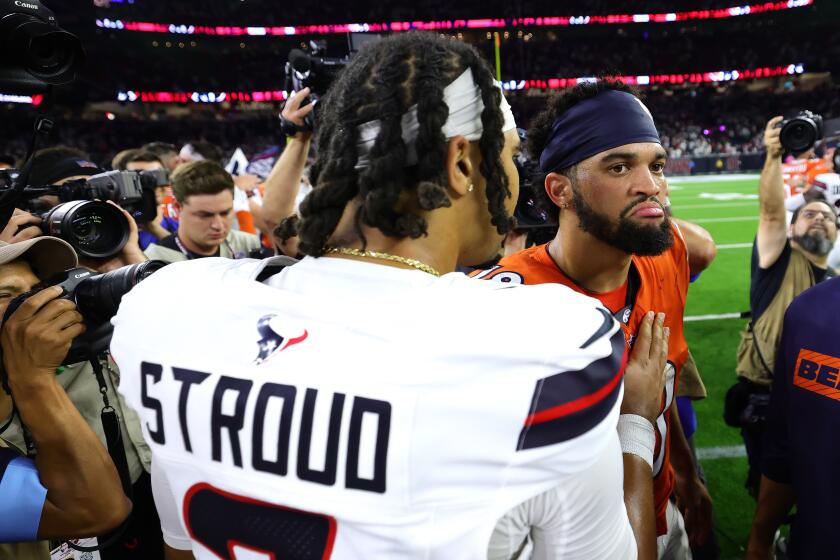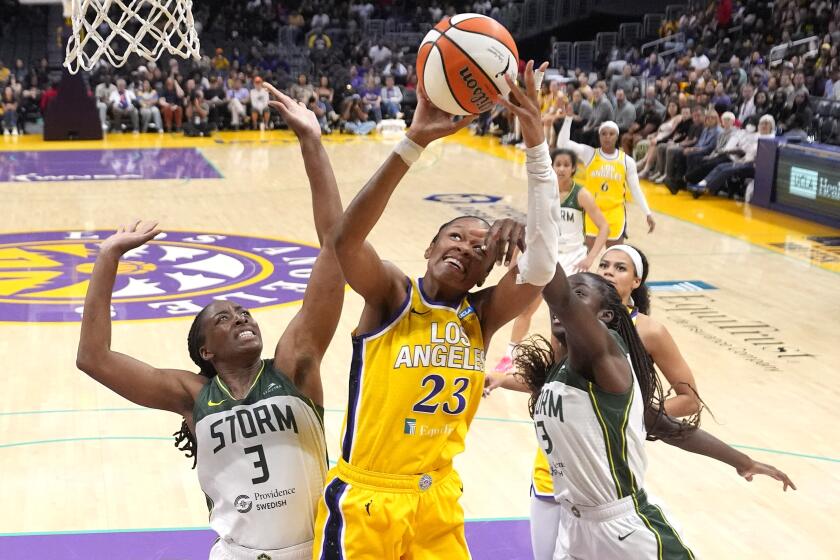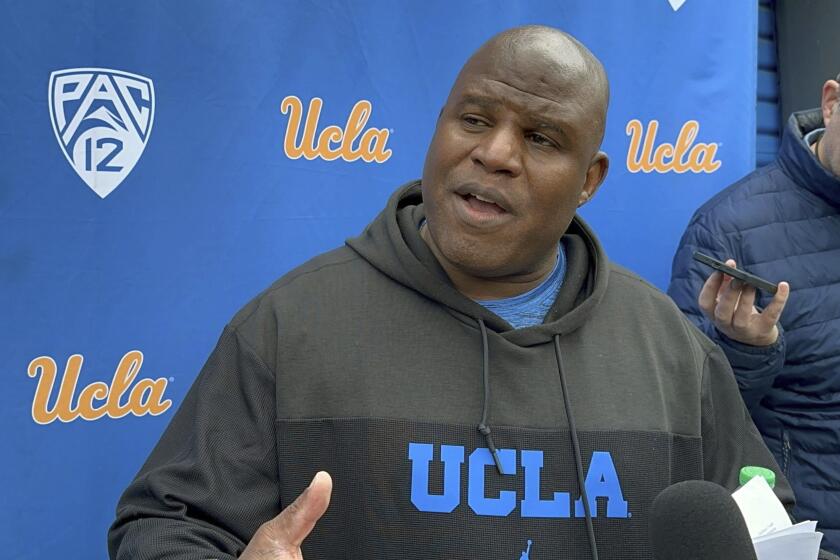Charles Barkley, Weight Watchers and why athletes eat badly
TNT announcer Charles Barkley may have caught some flack after calling his shedding of 38 pounds in three months for a Weight Watchers campaign a “scam” (comments that he sort of seemed to mean in a good way, allowing the company a graceful response).
But in spite of that hot-mic accident -- and though the former Phoenix Suns power forward has been known to trade snappy remarks with the Miami Heat‘s Dwyane Wade -- he and the younger basketball player share an emphasis on getting fitter and eating right.
“Now I’m starting to do stuff like eating salads. I never ate salads,” Wade said recently, according to the South Florida Sun Sentinel.
“It wasn’t laid out as it is now, when they tell you, ‘This is what you need to do. This is what helps you,’” he said. “And right now, in my life, it’s about nutrition, because this is what gives me an edge.”
It’s an attitude that coaches and players have been slowly taking on -- with some reluctance -- across the realm of professional sports. This NPR story on the San Francisco Giants’ new, more healthful meal plan highlights many players’ reluctance to give up fast food.
“It’s a little healthy for my taste,” Tim Lincecum, one of the team’s star pitchers, told NPR. “I like to eat more McDonald’s style, you know, In-N-Out Burger, Subway, Quiznos kind of stuff.”
The movement toward good nutrition in sports may be struggling against a long-held tradition of poor eating, the story points out: After all, Babe Ruth was known to put away a dozen hot dogs before stepping up to the plate.
A paper published online in 2011 in the journal Appetite seems to bear this out. As part of a study of soccer culture, researchers interviewed professional players in England on their diet and nutrition. “English professional football culture had a great impact on the nutritional intakes of professional football players.... Generally managers are former players, and most of them hold the [idea] that nutrition is not beneficial,” the study authors write.
Players gravitated toward food from their childhoods, foods associated with their social class or their country of origin. And certain cultures, according to the study, were seen as offering less healthful fare. Take this German-born player’s view of English cuisine: “I don’t like British food because it’s bad! British food is fatty and a lot of junk food: chips, burgers, kebabs … a lot of food with fat on it! I don’t like junk food. I like to eat proper food.”
You’d expect athletes to be relatively more conscious of, say, their leafy greens. But overall, according to the study, the players ate fewer fruits and vegetables per day than the average English male. Now that’s irony, without the iron.
Follow me on Twitter @LAT_aminakhan.
More to Read
Go beyond the scoreboard
Get the latest on L.A.'s teams in the daily Sports Report newsletter.
You may occasionally receive promotional content from the Los Angeles Times.











